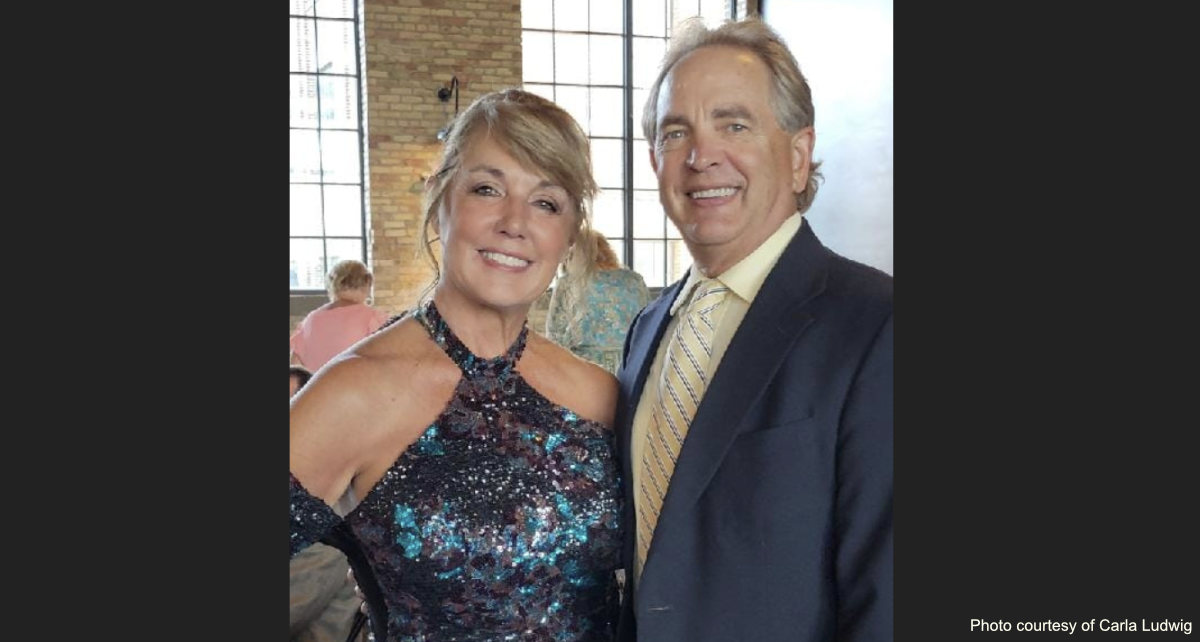Carla Ludwig had always been active in the pro-life movement, working with Grand Rapids Right to Life, participating in the 40 Days for Life campaign, and serving as a board member with Life Matters Worldwide. She finished dental school but when she gave birth to six children in eight years, she chose to be a stay-at-home mom. For her, motherhood was always a priority.
When her youngest child became pregnant while a freshman in college, she knew her pro-life convictions would come under scrutiny.
Ludwig told Live Action News, “My daughter was so young at the time and sometimes you just focus on the situation. She could have aborted at any time, and I wouldn’t have known. Yet she decided to have the baby; there was never any discussion about abortion. I knew then that I had done my job in instilling the value of life to my family.”
But the road was challenging for the teen mother. Many of her daughter’s friends were uncomfortable with her decision to parent her baby at a young age and she lost friends. For a while, Ludwig’s daughter and granddaughter lived at home with her parents, and then her daughter moved to Kentucky to live with her sister.
“She would work to pay her bills and I helped her out as well,” Ludwig said. “But she was struggling to make enough money to make ends meet. She realized she needed better skills and needed to return to college so she could get a secure, well-paying job. I decided to help fund her college expenses.”
Hope for Moms springs from a desire to help single mothers attain marketable skills
While Ludwig’s daughter was in the honors program and completed her degree requirements early, Ludwig noticed the challenges and barriers that single mothers experience when trying to attend college or vocational school… and an idea began to take shape.
Ludwig said, “It’s tough to work all day, attend classes in person or even online when you’re juggling childcare as a single mother and a demanding job. There’s a feeling of isolation and of being overwhelmed.”
Gaps in social services, Ludwig noted, can limit coverage for basic needs like childcare assistance. Ludwig saw that a lack of financial and emotional support for women who have chosen life often hinders single mothers from bettering their circumstances.
“Close to half of single moms live in poverty, which has adverse and lasting effects on their children’s development and emotional well-being,” Ludwig said. “Acquiring marketable skills to get better paying jobs allow for more stability and less stress on the family unit.”
With a mission to remove those obstacles to women fulfilling their potential, Ludwig launched Hope for Single Moms.
“We offer a holistic program for women who are attending college or vocational school that helps pay for books, tuition, uniforms and childcare services — unmet needs that social services don’t usually cover,” Ludwig said. “We pair qualified mentors with each woman to help with meal planning and babysitting.”
Hope for Single Moms not only aids in establishing stable families but also encourages family traditions.
Ludwig said, “Every year we host a Thanksgiving meal and provide food baskets and Christmas gifts to the families we support.”
A complimentary extension of pregnancy support center programs
To expand its reach to single expectant mothers, Hope for Single Moms partners with pregnancy support centers and sidewalk counselors, and is listed on the website of Protect Life Michigan as a resource.
“At the pregnancy support centers, we offer career consultation classes and have formed alliances with sidewalk counselors at abortion clinics frequented by college students,” Ludwig said. “The counselors are trained to initiate a discussion with these women and tell them about Hope for Single Moms. They want these women to know they don’t have to decide in a state of panic; that there are viable resources.”
Through the organization’s program is geared for college-aged women who are in unplanned pregnancies, Hope for Single Moms seeks to break the stereotype that single moms are all people who just want to take advantage of the welfare system. Sharing testimonies at fundraising events provides offers an inside view at women working diligently so they can offer healthier lifestyles for their children.
Ludwig said, “As single mothers, their struggles are relatable to other women grappling with similar circumstances, so we want to amplify their voices and let these women know there are programs available to give them a leg up without stripping them of their dignity.”
Women entering the program are given plans formulated on their individual needs and goals. Hope for Single Moms works with women 18 years or older facing unplanned pregnancies, working alongside pregnancy support centers as an extension of pro-life services not always offered by the centers.
“As a pro-life movement, we need to take it to the next level by offering longer-term support,” Ludwig said. “We want to give these women hope for the future by impressing upon them that their past doesn’t define them, that they can learn from their mistakes and move forward.”
For example, the program spans three years in which women undergo career assessment tests, set extensive goals to help them move forward as well as learn good parenting skills and formulate realistic financial budgets to fully prepare women to be successful on their own. Likewise, adhering to strict requirements are necessary to enable women to concentrate on school and child rearing.
“We want to give these women a fresh start,” Ludwig said. “So, we don’t allow our clients to live with a man and encourage them to provide ‘tough love’ to their children by setting boundaries. We give these women the right tools to be good parents and attain an education. They can do both. Our success stories are a testament to our effectiveness. Women don’t need to kill their children to thrive.”







